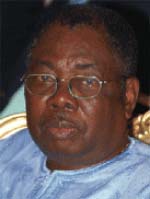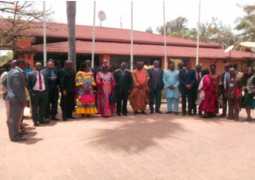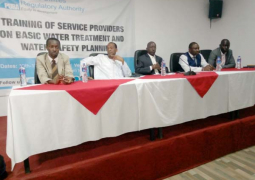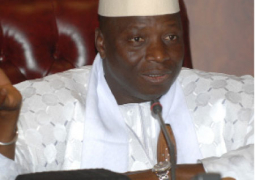
Electricity demand in the 15 member states of ECOWAS is expected to record a quantum leap to 22,000 mega watts in 2020 from 6,500 MW in 2003, a growth rate of 7.6 per cent, the President of the ECOWAS Commission, Ambassador James Victor Gbeho, said on 28 September 2010 in
The ECOWAS president was speaking at the opening of the third ECOWAS Business Forum. "This tremendous increase in the demand for power imposes a responsibility on both governments and the private sector to develop innovative and ambitious projects in the energy sector," he told the 450 participants at the forum on the theme: "Harnessing Energy Resources to enhance the competitiveness of
Mr Gbeho attributed the demand to "industrialization and population growth", acknowledging that in spite of the phenomenal growth, less than 30 per cent of the population of the region’s citizens have direct access to electricity with wide disparities between the access level between the urban and rural areas while the traditional biomass remains the main source of energy for the majority.
The deficit, he said, provides a challenge for the private sector which has the capacity to "contribute significantly to the growth of the sector" through scaling up its investment in this sector, providing financial support, leading the campaign to remove barriers and rigid regulations that discourage investment, augmenting the campaign for substantial partner support, and contributing to regional initiatives that promote the convergence of policies.
"In such circumstances, what we need now is to foster private sector participation in the energy sector," he said, adding that this could be done through the "adoption of appropriate strategies, engaging with national governments and relevant partners to invest in the energy sector".
The President said the Commission has undertaken various initiatives to stimulate investment in the energy sector, build synergies and improve the regulatory environment through the establishment of the West African Gas Pipeline and Power Pool projects as well as the creation of the Accra-based ECOWAS Regional Electricity Regulation Authority and the Praia-based Centre for Renewable Energy and Energy Efficiency.
In recognition of the strategic role of the private sector as a catalyst for growth, Ambassador Gbeho said the Commission has, since 2007, engaged in a process of engaging this sector by reviving moribund regional structures and creating new ones so that they deploy the muscle of this sector in support of regional development. In addition, he said, the previous fora held in
Opening the five-day Forum, President Laurent Gbagbo, who was represented by the Minister of Economic Infrastructure, Banzio Dagobert, characterised the current energy situation in the region as a "crisis" that requires that the region revisits its present energy use and takes various other measures to improve access.
The President, who has been in the forefront of a campaign for a regional fund for the development of regional infrastructure to enhance its competitiveness and facilitate intra-community trade and movement, said that in view of the emergency in the sector, there was the need to build on existing technology that would enable the region improve energy generation, distribution and availability.
Meanwhile, The Gambia is being represented at the forum by a group of private sector operators led by the Deputy Minister of Energy Tenengba Jaiteh.
During the weeklong programme, forty-five persons will be honoured for "innovation and entrepreneurship". The inaugural awards will be made in three categories, one from each member state for a "Young Entrepreneur for Innovation in Energy" and another one for "Entrepreneurship". The third award is for the "Most Outstanding Businessman" from each member state. The best country in the implementation of the Protocol on Free Movement of Persons will also be honoured as part of the Forum.
The awards are part of the efforts by the ECOWAS Commission to recognize innovation and entrepreneurship which are important tools for enhancing regional competitiveness and development.
The inaugural edition of the Forum was held in 2007 in




